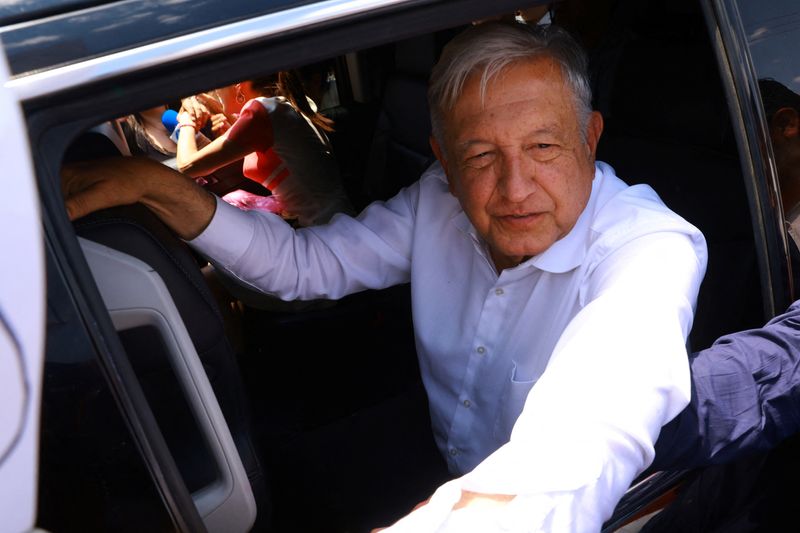MEXICO CITY (Reuters) -A Mexican judge ordered the Lower House of Congress not to discuss controversial judicial reform scheduled to be taken up by lawmakers the first week of September, according to a legal document reviewed by Reuters on Saturday.
The judicial reform, pushed by Mexican President Andres Manuel Lopez Obrador, has generated tensions with the United States and has spooked foreign investors.
The order to temporarily block lawmakers from debating and voting on the reform was issued by District Judge Martha Eugenia Magaña López in the Mexican state of Morelos, in response to concerns about judicial workers' labor rights.
The reform would see around 7,000 judges, magistrates and justices elected by popular vote, lower experience and age requirements and reduce the size of the nation's top court.
Proponents say it will improve democracy and help fix a system that no longer serves the public, but critics say it will cut off judges' careers, skew power to the executive branch, and open the judiciary to criminal influence.
The judge's order issued on Saturday would prohibit lawmakers in the Lower House of Congress from discussing the reform until Sept. 4, when the judge will rule on whether to issue a permanent suspension.
However, Congress has ignored similar orders from judges in the past, leading to doubt as to whether the lawmakers will heed the judge's order or take up the reform anyway.
The ruling Morena party and its allies hold a two-thirds supermajority in the lower house and are one seat short in the Senate.
Separately, a district judge in Chiapas, Felipe Consuelo Soto, also ruled on Saturday in favor of judges who had challenged the judicial reform. His order would stop the reform from being sent to state legislatures for approval, if it were passed by Congress.
On Saturday afternoon, Morena's leader in the Lower House, Ricardo Monreal, said lawmakers would not heed the rulings, calling them "undue and rude interference."
"We respond only to our constituents, the people, who were the ones who elected us at the polls," he added.
Lopez Obrador argues that the current justice system "responds to the interests of organized crime," and that an overhaul is necessary to root out such corruption.
President-elect Claudia Sheinbaum, who will take office on Oct. 1, has supported the reform, saying it will help combat the country's high levels of impunity for violent crime.
The unions representing judicial workers say the proposed changes would trample on labor rights and that the popular election of judges risks allowing special interests - including criminal groups - to seize control of the judiciary.
The proposal has also generated concern among investors, who say that it would weaken one of the checks on the executive branch and hurt the business climate in Latin America's second largest economy.

The proposal has also sparked tensions between Mexico and the United States and Canada.
Lopez Obrador said earlier this week that he had paused relations with the Canadian and U.S. embassies in the country over their criticisms of the reform, which he said disrespected Mexico's sovereignty. He stressed the pause was only with the embassies, and not with the countries themselves.